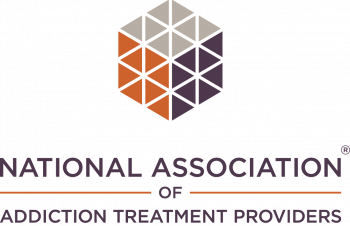It’s common to attend a party or sporting event and see people consuming large amounts of alcohol. Many individuals want to let loose and have fun for a few hours, then go back to their everyday lives. However, for some people, excessive drinking doesn’t end once the party is over. Some people find that they need alcohol to get through the day and experience withdrawal symptoms or uncontrollable cravings when they try to stop. Alcohol addiction treatment can lead to changes in the brain that cause long-term physical and emotional impacts. Understanding how alcohol addiction can affect the brain can help you reach out for help when you need it.
Alcohol Impacts Your Ability to Function Normally
How immediately you feel the effects of alcohol depends on your tolerance level, what you are drinking, and how much you consume. Alcohol gets absorbed through your stomach lining and goes into your bloodstream. The brain typically starts reacting to the effects of alcohol in around ten minutes.
The physical signs that usually appear in people under the influence of alcohol include:
- Trouble walking
- Slurred speech
- Blurry vision
- Problems staying awake
Men tend to be able to consume more than women before they start feeling the effects of alcohol. As your brain continues to feel the impacts of your alcohol consumption, you may start experiencing the following feelings and emotions:
- Extreme happiness because of the release of additional dopamine
- Depression after the initial high wears off
- Disorientation as tissues in the body continue absorbing alcohol
- Excitement as the alcohol starts affecting other parts of your brain
- Loss of motor skills because the alcohol interferes with your ability to process sensory information
- Confusion as the cerebellum is affected by the alcohol
- Severe impairment of all physical, mental, and sensory abilities because of high blood alcohol levels
Alcohol Damages Vital Areas of the Brain
Heavy drinking caused by an alcohol addiction can lead to long-term and even permanent impairment of the brain. You may start to develop mental health issues like anxiety and depression. Constant drinking can lead to irreversible damage to your cerebellum, which controls your ability to maintain balance. You may start having trouble walking or find yourself feeling dizzy even if you only walk a short distance.
You may find yourself having difficulty feeling positive emotions because of long-term drinking. That’s because long-term alcohol abuse can kill brain cells and damage neural cells in your brain to where they cannot self-repair.
Alcohol Impairs Your Ability to Make Sound Judgments
Your alcohol addiction can lead you to make choices that can have long-term and even life-threatening consequences. If you get behind the wheel of a car while intoxicated, at best, you may end up with a DUI. Driving under the influence can lead to dangerous accidents in addition to legal consequences.
Unfortunately, many people have a hard time recognizing that they have an alcohol addiction. They may ignore good advice or suggestions to seek out treatment. The longer you continue risky behavior while under the influence, the more likely it is that you will suffer serious repercussions for your actions. Reach out for help from an addiction treatment center can help you begin to rebuild your life.
Reach Out for Help from TruHealing Gaithersburg
TruHealing Gaithersburg provides a safe, therapeutic environment for clients with problems tied to alcohol addiction and other substance use disorders. The therapies we offer as part of our programs include:
- Cognitive-behavioral therapy
- Dialectical behavior therapy
- Trauma therapy
- EDMR therapy
You don’t have to experience the effects of long-term alcohol addiction. Start changing the direction of your life today by calling TruHealing Gaithersburg at (833) 625-0398.









